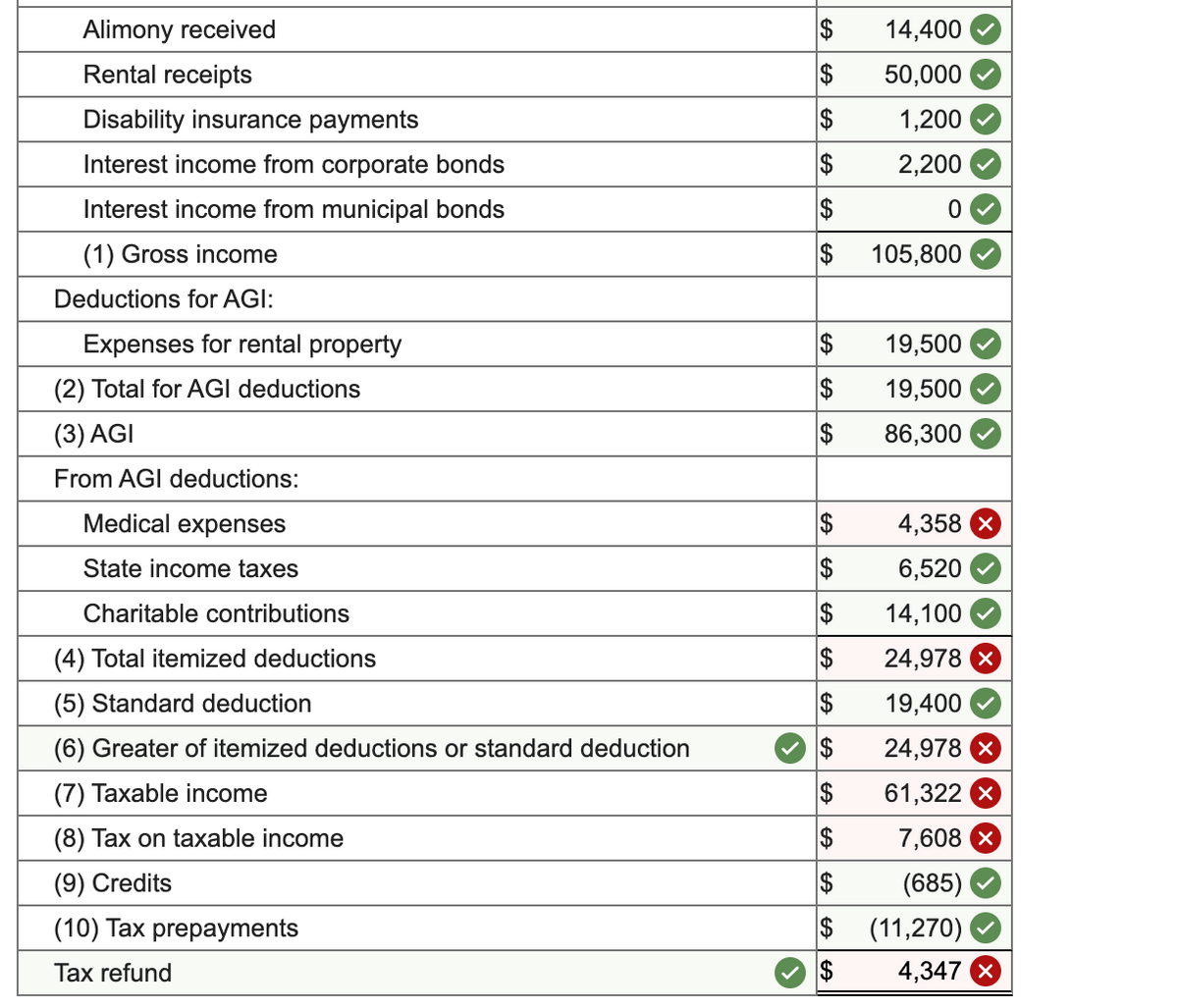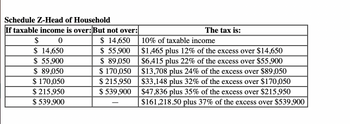Reba Dixon is a fifth-grade school teacher who earned a salary of $38,000 in 2022. She is 45 years old and has been divorced for four years. She receives $1,200 of alimony payments each month from her former husband (divorced in 2016). Reba also rents out a small apartment building. This year Reba received $50,000 of rental payments from tenants and she incurred $19,500 of expenses associated with the rental. Reba and her daughter Heather (20 years old at the end of the year) moved to Georgia in January of this year. Reba provides more than one-half of Heather's support. They had been living in Colorado for the past 15 years, but ever since her divorce, Reba has been wanting to move back to Georgia to be closer to her family. Luckily, last December, a teaching position opened up and Reba and Heather decided to make the move. Reba paid a moving company $2,250 to move their personal belongings, and she and Heather spent two days driving the 1,600 miles to Georgia. Reba rented a home in Georgia. Heather decided to continue living at home with her mom, but she started attending school full-time in January and throughout the rest of the year at a nearby university. She was awarded a $3,360 partial tuition scholarship this year, and Reba helped out by paying the remaining $500 tuition cost. If possible, Reba thought it would be best to claim the education credit for these expenses. Reba wasn't sure if she would have enough items to help her benefit from itemizing on her tax return. However, she kept track of several expenses this year that she thought might qualify if she was able to itemize. Reba paid $6,520 in state income taxes and $14,100 in charitable contributions during the year. She also paid the following medical-related expenses for herself and Heather: Insurance premiums $ 8,960 Medical care expenses $ 1,100 Prescription medicine $ 470 Nonprescription medicine $ 100 New contact lenses for Heather $ 200 Shortly after the move, Reba got distracted while driving and ran into a street sign. The accident caused $1,020 in damage to the car and gave her whiplash. Because the repairs were less than her insurance deductible, she paid the entire cost of the repairs. Reba wasn't able to work for two months after the accident. Fortunately, she received $2,000 from her disability insurance. Her employer, the Central Georgia School District, paid 60 percent of the premiums on the policy as a nontaxable fringe benefit and Reba paid the remaining 40 percent portion. A few years ago, Reba acquired several investments with her portion of the divorce settlement. This year she reported the following income from her investments: $2,200 of interest income from corporate bonds and $1,740 interest income from City of Denver municipal bonds. Overall, Reba's stock portfolio appreciated by $13,510, but she did not sell any of her stocks. Heather reported $6,400 of interest income from corporate bonds she received as gifts from her father over the last several years. This was Heather's only source of income for the year. Reba had $11,270 of federal income taxes withheld by her employer. Heather made $1,120 of estimated tax payments during the year. Reba did not make any estimated payments.
Reba Dixon is a fifth-grade school teacher who earned a salary of $38,000 in 2022. She is 45 years old and has been divorced for four years. She receives $1,200 of alimony payments each month from her former husband (divorced in 2016). Reba also rents out a small apartment building. This year Reba received $50,000 of rental payments from tenants and she incurred $19,500 of expenses associated with the rental.
Reba and her daughter Heather (20 years old at the end of the year) moved to Georgia in January of this year. Reba provides more than one-half of Heather's support. They had been living in Colorado for the past 15 years, but ever since her divorce, Reba has been wanting to move back to Georgia to be closer to her family. Luckily, last December, a teaching position opened up and Reba and Heather decided to make the move. Reba paid a moving company $2,250 to move their personal belongings, and she and Heather spent two days driving the 1,600 miles to Georgia.
Reba rented a home in Georgia. Heather decided to continue living at home with her mom, but she started attending school full-time in January and throughout the rest of the year at a nearby university. She was awarded a $3,360 partial tuition scholarship this year, and Reba helped out by paying the remaining $500 tuition cost. If possible, Reba thought it would be best to claim the education credit for these expenses.
Reba wasn't sure if she would have enough items to help her benefit from itemizing on her tax return. However, she kept track of several expenses this year that she thought might qualify if she was able to itemize. Reba paid $6,520 in state income taxes and $14,100 in charitable contributions during the year. She also paid the following medical-related expenses for herself and Heather:
| Insurance premiums | $ 8,960 |
|---|---|
| Medical care expenses | $ 1,100 |
| Prescription medicine | $ 470 |
| Nonprescription medicine | $ 100 |
| New contact lenses for Heather | $ 200 |
Shortly after the move, Reba got distracted while driving and ran into a street sign. The accident caused $1,020 in damage to the car and gave her whiplash. Because the repairs were less than her insurance deductible, she paid the entire cost of the repairs. Reba wasn't able to work for two months after the accident. Fortunately, she received $2,000 from her disability insurance. Her employer, the Central Georgia School District, paid 60 percent of the premiums on the policy as a nontaxable
A few years ago, Reba acquired several investments with her portion of the divorce settlement. This year she reported the following income from her investments: $2,200 of interest income from corporate bonds and $1,740 interest income from City of Denver municipal bonds. Overall, Reba's stock portfolio appreciated by $13,510, but she did not sell any of her stocks.
Heather reported $6,400 of interest income from corporate bonds she received as gifts from her father over the last several years. This was Heather's only source of income for the year.
Reba had $11,270 of federal income taxes withheld by her employer. Heather made $1,120 of estimated tax payments during the year. Reba did not make any estimated payments.

Trending now
This is a popular solution!
Step by step
Solved in 2 steps

hi! for the tax on taxable income, I used the attached tax table, and found 6415+22%(61422-55900)=7630. Isn't that the way we should calculate the tax?








